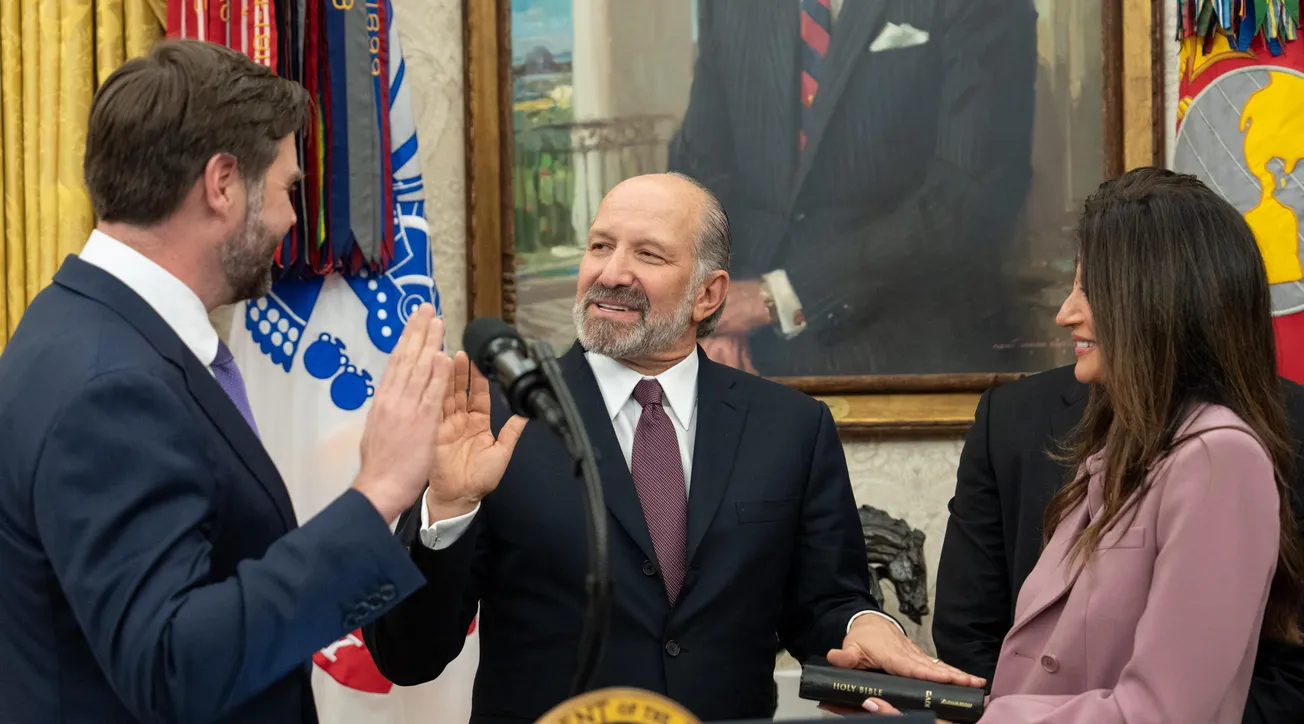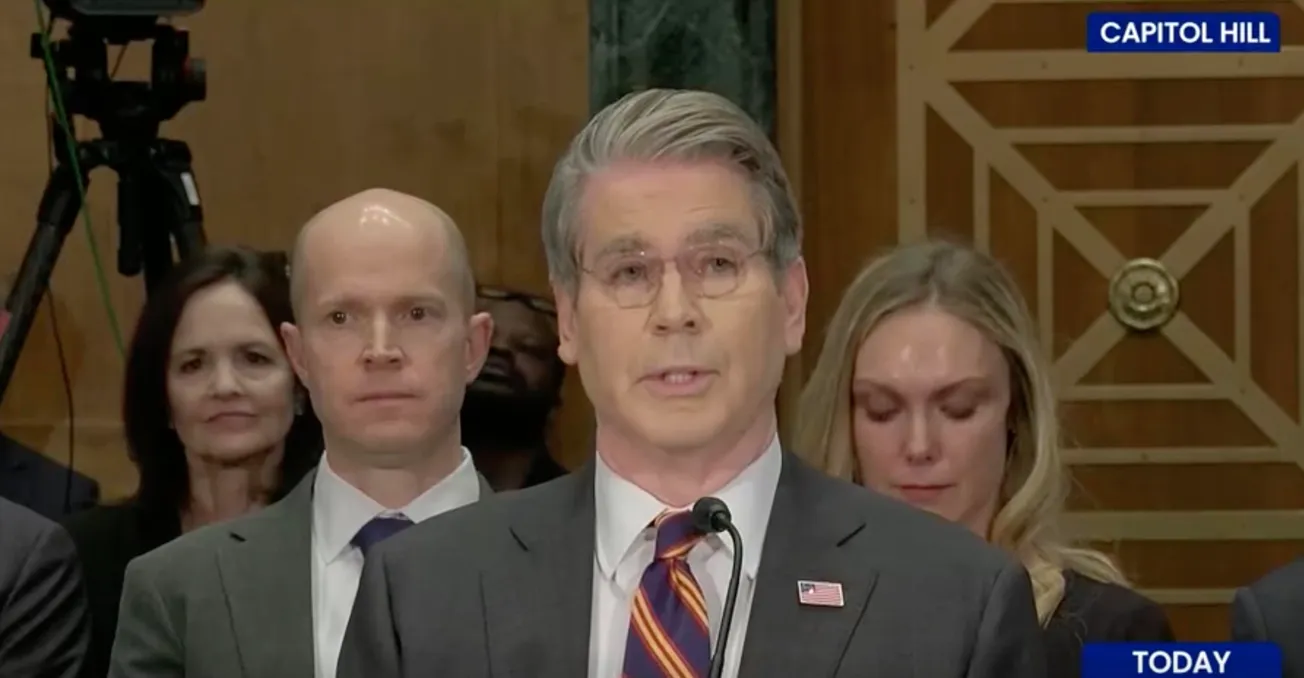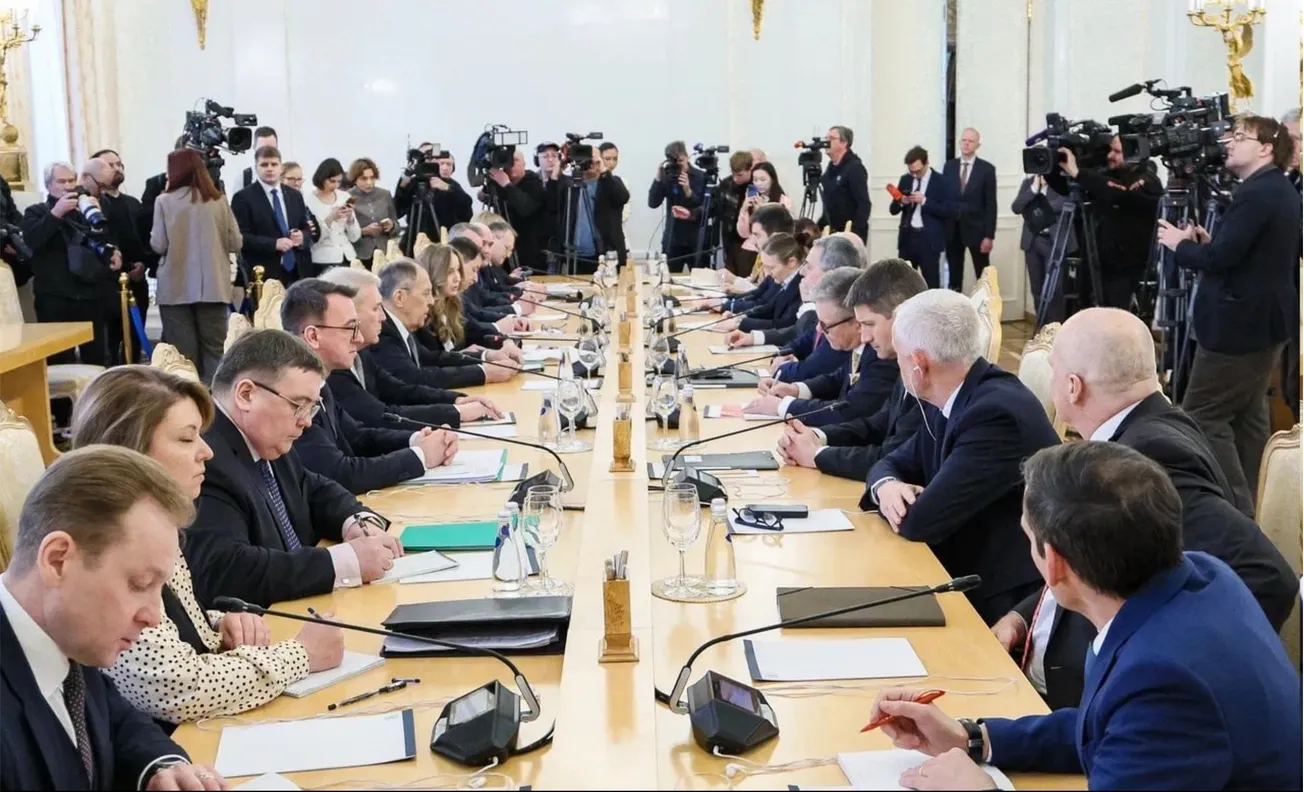Russian Foreign Minister Sergey Lavrov laid out Russia’s “Greater Eurasian Partnership” today, centered upon great infrastructure projects, while brushing aside the small-minded geopoliticians of the West, in an extensive interview with Marina Kim for the Novy Mir (“New World”) project. He suggested that some in Western Europe are beginning to pay attention.
“Our main task now is to achieve all the goals formulated by President Vladimir Putin. You are aware of the West’s expectations. They are speculating about stopping the hostilities at a certain line and coordinating a truce, so that 10 years from now they will decide who Crimea and Donbass belong to. This is coffee cup reading. I won’t engage in it. We have our tasks, and we will fulfill them.”
Lavrov noted that they were moving forward with the goals set by the Concept of the Russian Foreign Policy announced in March 2023 by President Putin. “This includes the promotion of the concept of the Greater Eurasian Partnership, so that all structures and countries located on the Eurasian continent promote contacts, exchange integration experience, harmonize their projects, implement large-scale infrastructure tasks, including the well-known project of the International North-South Transport Corridor. This also includes the project to connect the ports of India with the ports of the Far East, the Northern Sea Route.”
While this is being done in the context of the BRICS and the development of the Global South, utilizing the organizational structures that have been developed in the Eurasian region during the period of attempted isolation by the countries of the West, it was also open to the countries of Western Europe. Lavrov explained: “Moreover, it was specifically stated that this architecture, as well as the Greater Eurasian Partnership, should be open to all countries and continents, including the western part of Eurasia, which, by inertia, is still trying to ensure its interests within the framework of not the Eurasian (which would be natural, given the geography), but the Euro-Atlantic concept of security, thereby confirming that they are not going to do anything without the United States.
“But these Euro-Atlantic motives are gradually disappearing from the positions and speeches of some European leaders. These are, first of all, Hungary and Slovakia. There are also a number of other politicians who are in opposition to the neoliberal regime that dominates Europe and are already beginning to think about the need to rely more on their own strengths, on cooperation with those who are located next to them.”
With regard to the U.S., he said: “Our Western colleagues have their own views on Eurasian security. They boil down to the fact that the U.S. should ‘lead the way’ everywhere. We oppose such an egoistic and aggressive approach with the concept of uniting the efforts of all countries on the continent and developing principles taking into account the presence of such structures here that deal with military-political issues as the SCO and the CSTO. ASEAN also has elements of military-political security.
“We are building connections between them, leaving the doors open to all who wish to work not on the basis of ‘rules’ that no one has seen, but which the West, with or without reason, constantly puts forward as an indispensable condition for contacts, but on the basis of international law and its central element—the sovereign equality of states. This is what we are striving for.”
With regard to the various “peace plans” being mooted by the Trump Administration, Lavrov said that a simple freezing of the lines of contact as they now exist would actually be worse than the Minsk agreements: “Among those who are now expressing (as they write) ‘revolutionary ideas’ in the Republican camp about how to end the Ukrainian conflict, no one has ever mentioned that the Ukrainian population should be given back the right to speak, study, teach their children and receive information in Russian. We have said this many times and continue to do so. None of the ‘architects’ of the ‘Ukrainian settlement’ in the West pay any attention to this. From my point of view, this means (on the issue of the similarity of the goals of any administration) that they are doing well by weakening Russia and its influence, weakening the Russian world, because ultimately everything that is happening comes down to the desire to suppress Russia as a competitor.”




